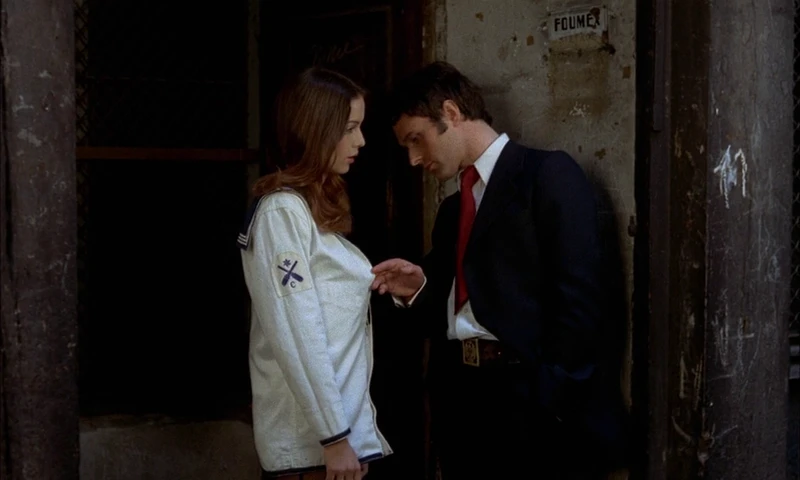Glissements progressifs du plaisir AKA Successive Slidings of Pleasure (1974)
| director: | Alain Robbe-Grillet |
| release-year: | 1974 |
| genres: | experimental, sexploitation, horror |
| countries: | France |
| languages: | French |
| fests: | Sexploitation Horror Fest (2022) |
French abstract, experimental, erotic horror, I suppose. Attempting to attribute genre here is a fool's errand, but morbidity permeates.
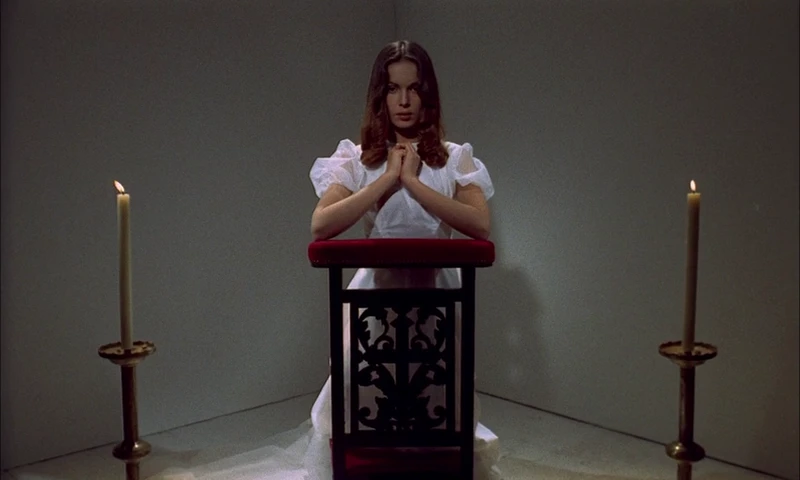
Having just watched Alain Robbe-Grillet's Eden and After, I know better than to expect any sort of decipherable narrative in this one.
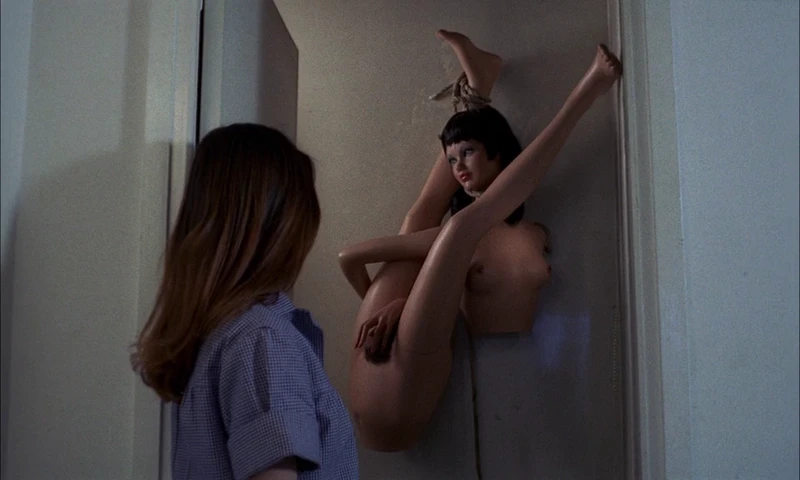
It strobes between scenes of people, with flashing red lights, sirens, chanting, and angry industrial and mechanical noises. Whatever is going on, the mood is not a happy one.
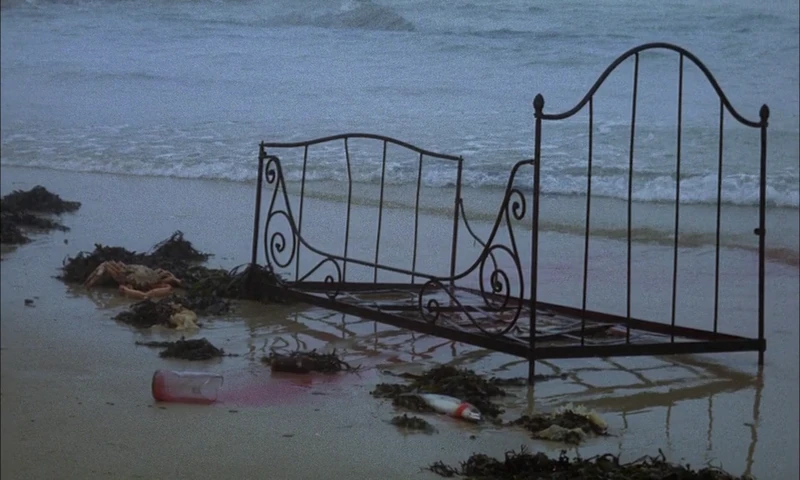
After a few minutes it starts, though "starts" is relative with these films. A lady dressed in spider webs and doilies gets undressed from her spider webs and doilies. The sight lines are strange. Her friend paints on her, then shrieks.
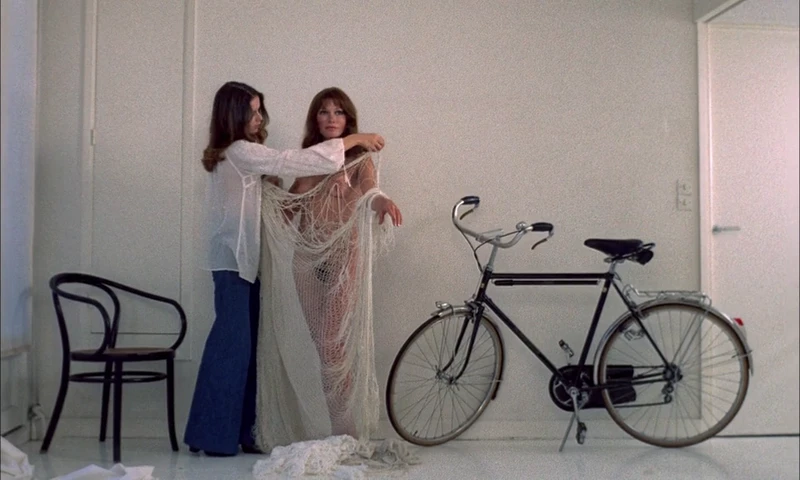
There are some jumps to some cars driving down the street, including a police car, all awkwardly sped up. A police dude arrives, looks around intensely, and says nothing. He moves overly dramatically through doorways, and does some spins.
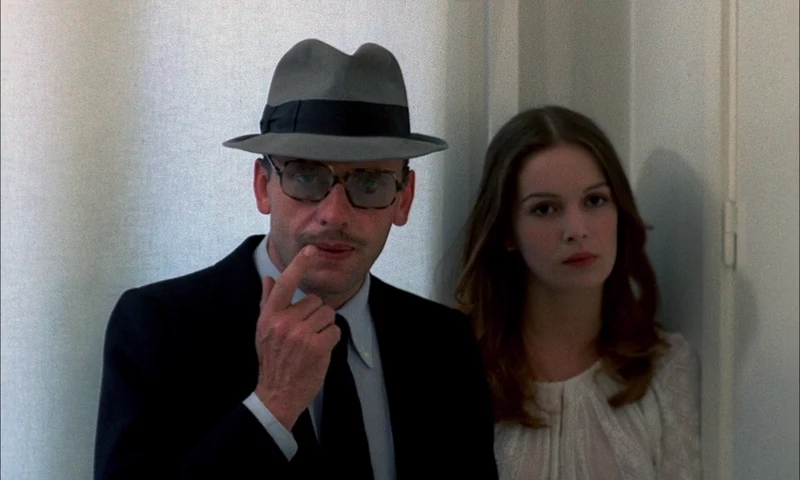
The painted woman is now a dead woman. The detective mutters knowingly and nods. He asks the friend some questions, like "do you like eggs?" and she does not respond.
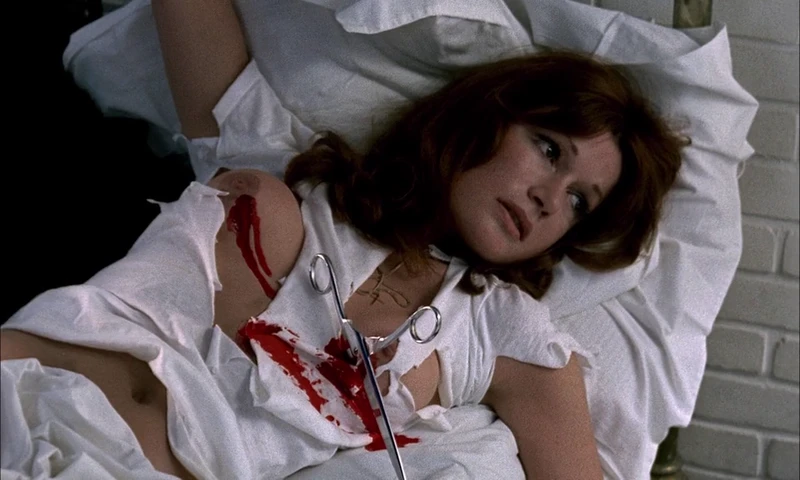
The beach is important. Also a broken bottle is very, very important. But we're not getting any straight answers.
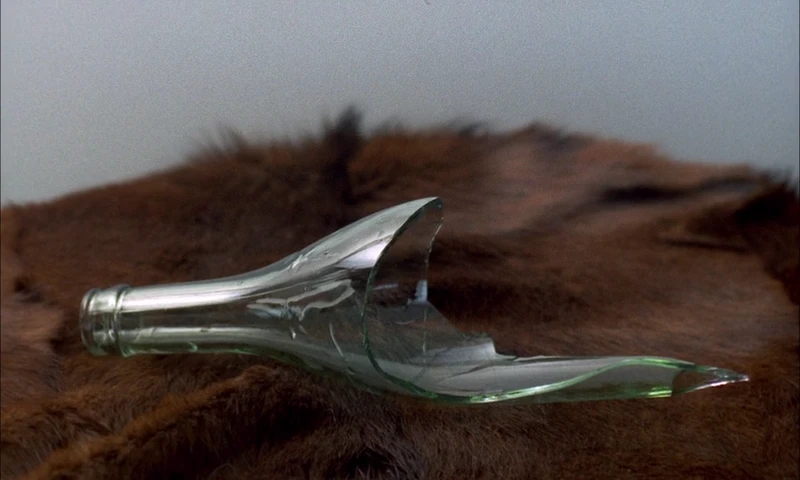
It seems she probably does like eggs. Eggs are a very common theme.
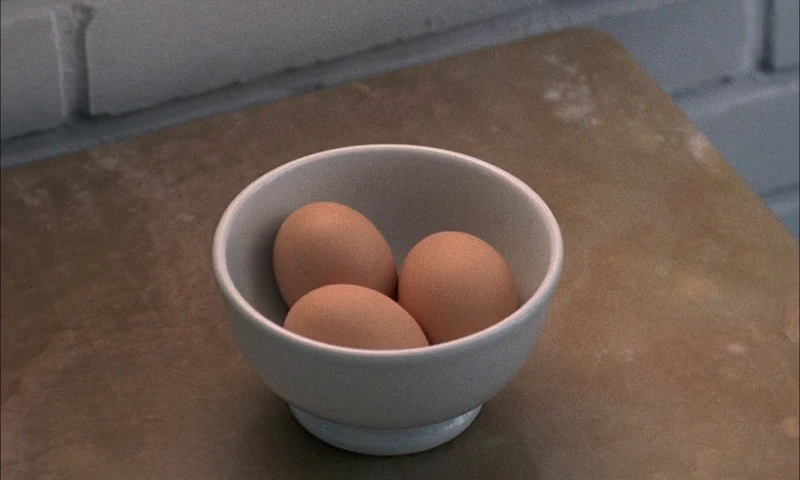
People speak at each other, but never with each other. Time is neither linear, nor is there a single timeline. Events do or do not happen, possibly multiple times.
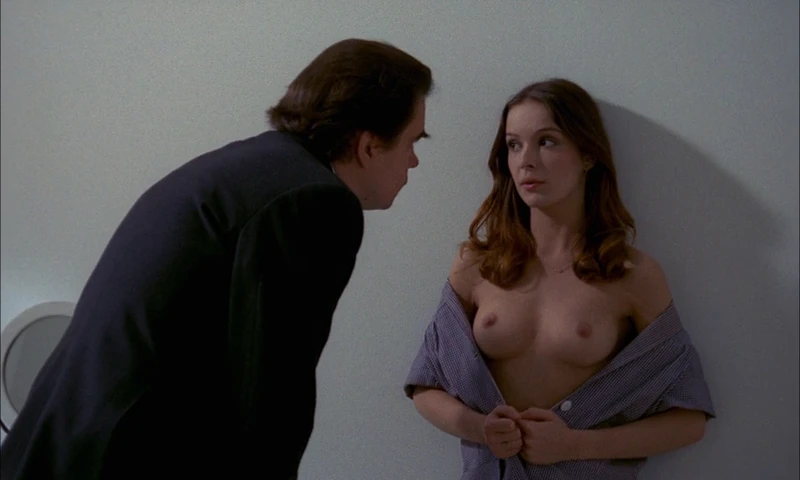
As with Eden and After, the brief images that flashed by in the beginning of the film show up later with a creation story. The creation story itself might mean nothing, but most imagery is introduced briefly and established later.
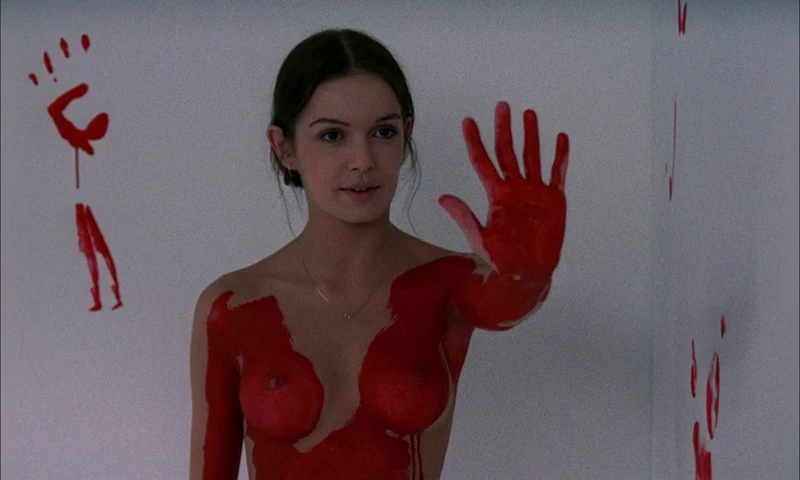
She lives in a prison convent. Possibly with a torture dungeon in the basement.
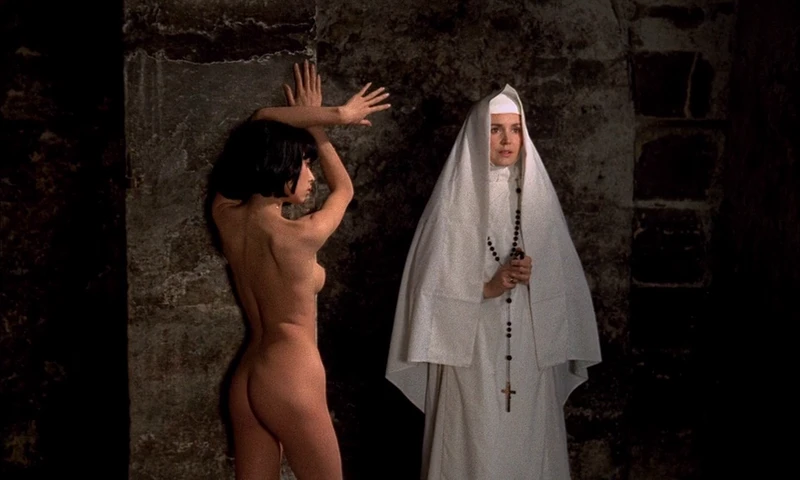
She is assigned a lawyer, who is played by the same actress as her murdered friend, and she comments on the similarity. The lawyer is the only person in the film who mostly, but not entirely conveys sensible thoughts.
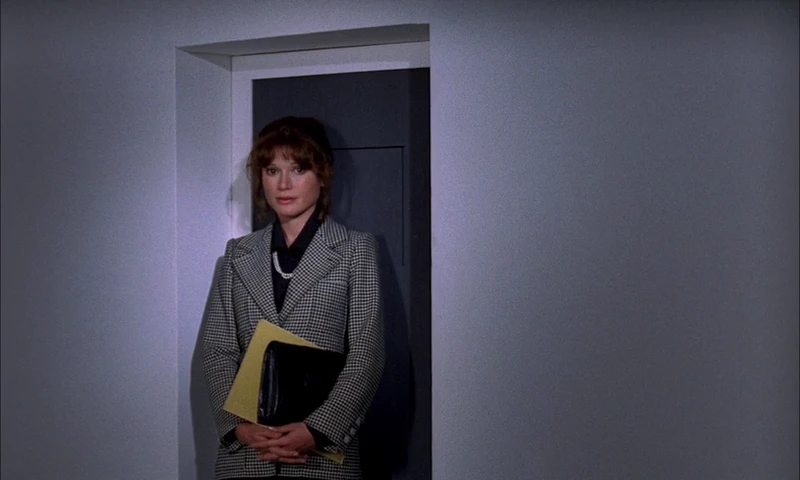
Detectives and judges and priests come by to get her story about the death of her roommate, and she inevitably gets lost in memories/day-dreams/visions. These flashbacks (?) are nearly always sexual, frequently involving lesbianism.
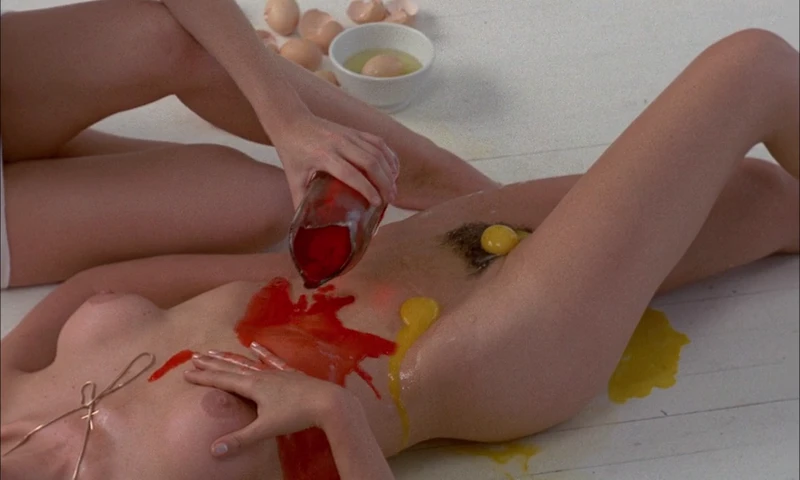
Her lawyer dies in very similar circumstances to how her friend died. "Then we have to start all over again," the detective says. The beach is important.
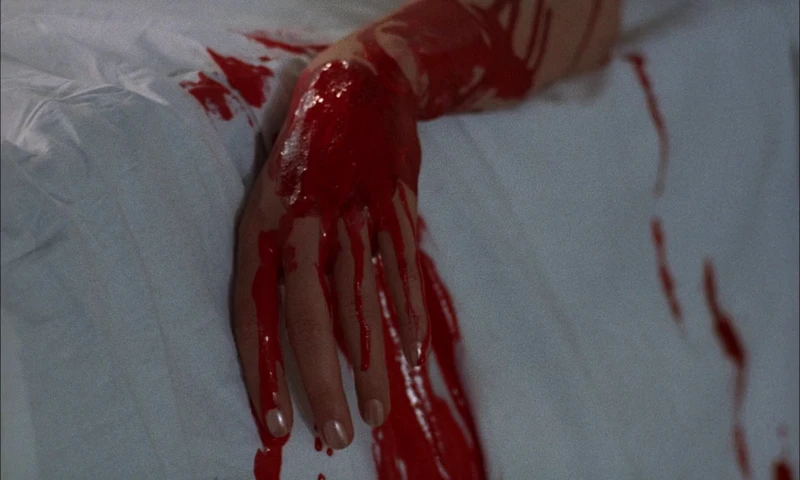
Many elements of Eden (four years this film's senior) are reused more-or-less exactly in this one, such as when they yell random words like "permutation!" at the camera. It goes on significantly longer here, and the wordplay gets old, but the Judge ruling from a bed full of books as he screams and mutters obscure words is pretty striking. Likewise, painting red paint on naked women showed up in Eden, along with the all-white-with-a-small-bright-red-highlight imagery.
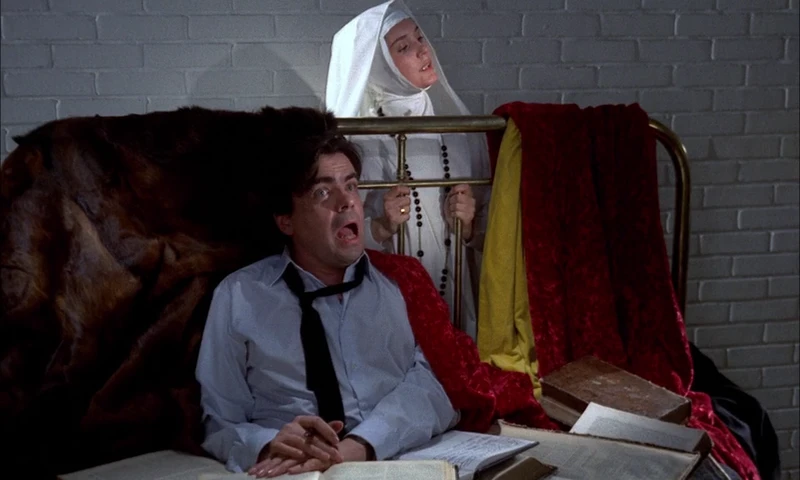
All in all, despite being a later work, this one feels less put together than Eden. He moved much more into the abstract, allowing the plot to be nothing more than a slight suggestion, but he used exactly the same techniques he had already tried in his earlier films.
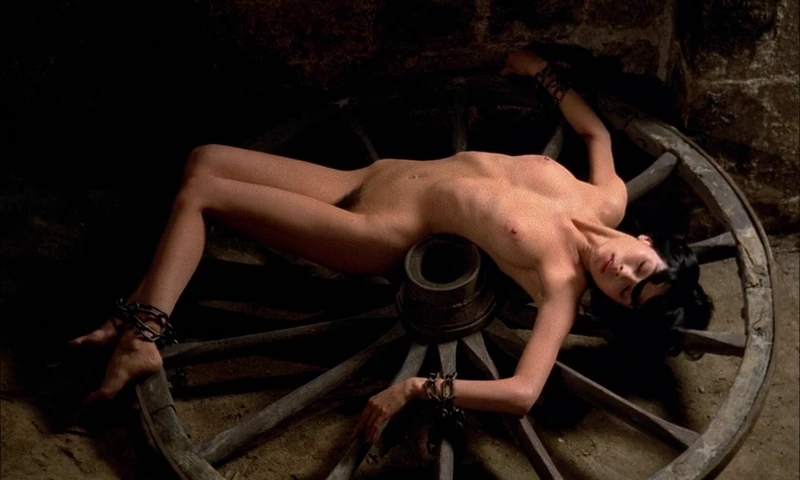
As with Eden, the soundtrack stays out of the way but conveys the chilling mood effectively, and the visuals are beautiful and engaging. Even if you don't have any idea what's going on, you certainly don't want to look away.
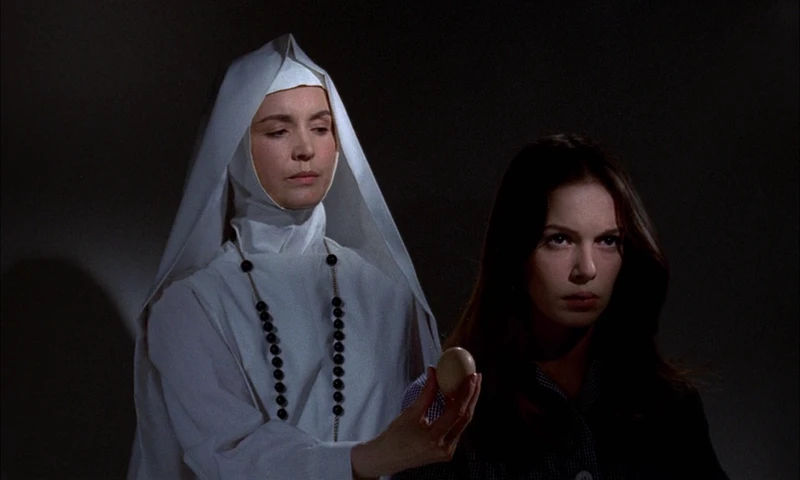
Likewise, the script is mostly poetic recitation of abstract nonsense, but it's quite nice abstract nonsense. This technique of having people speak meaningless phrases past each other is not uncommon in films that desperately want to be considered art, but they usually don't pull it off this well.
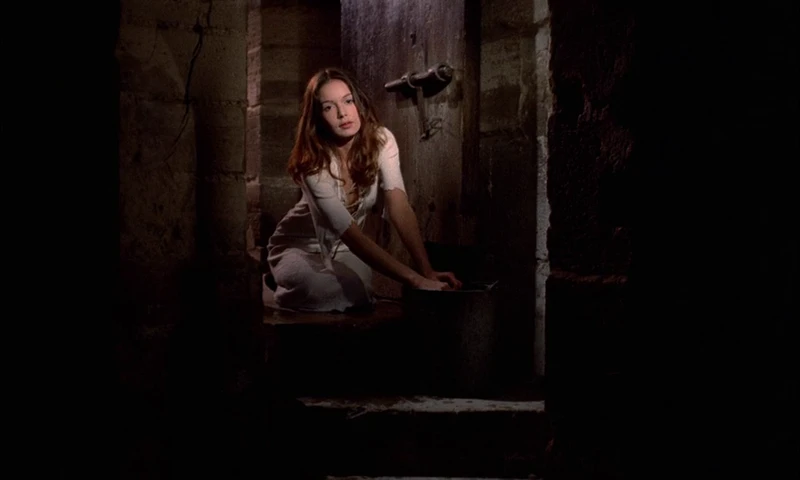
Much of the eroticism feels forced. There were plenty of scenes where nudity was suitable, but plenty of others that just seemed like unnecessary filler.
